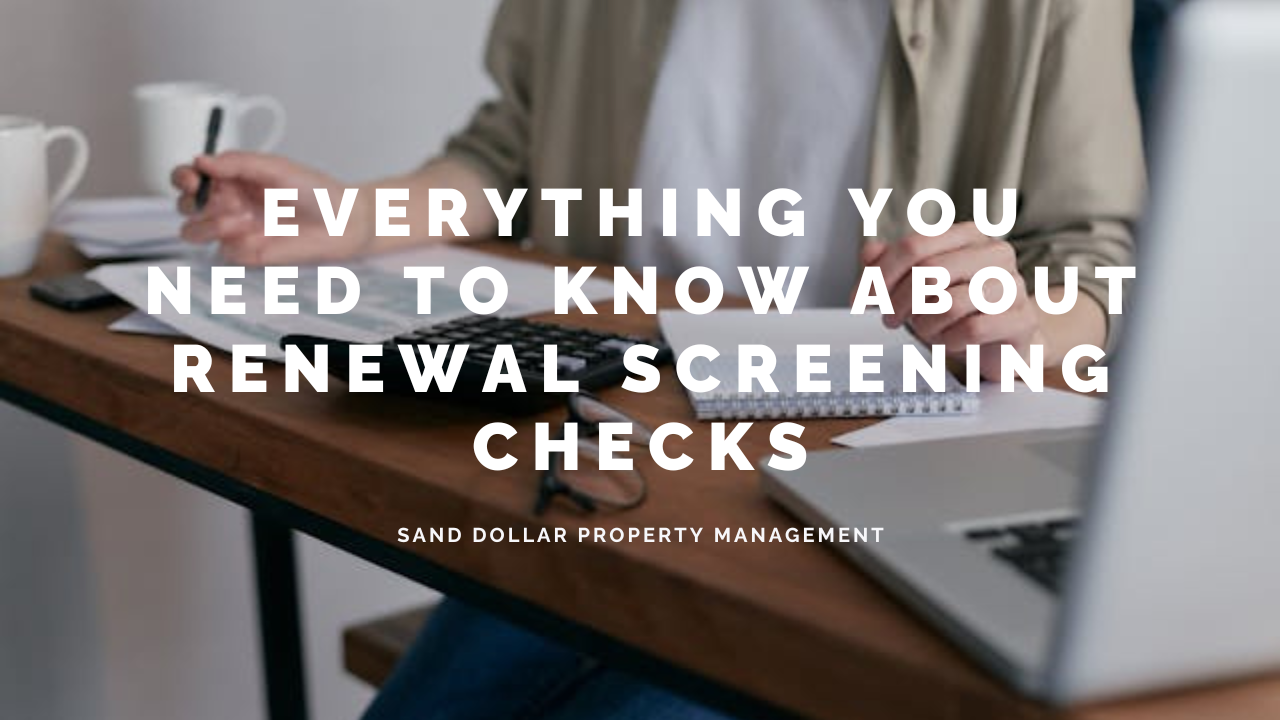Key Takeaways
- Renewal screenings help landlords manage evolving risks: Since tenants' financial or personal situations can change over time, re-screening at lease renewal helps landlords assess continued reliability, catch potential red flags early, and protect the property and community.
- Consistency and legal compliance are essential: To avoid discrimination claims and stay compliant with fair housing laws, landlords should screen all tenants equally at renewal, include screening policies in leases, and always obtain written consent before conducting checks.
Clear communication and documentation improve outcomes: Notifying tenants in advance, maintaining organized records, and being transparent about screening criteria ensures smoother renewals, strengthens landlord-tenant relationships, and supports professional decision-making.
According to a recent survey by the National Multifamily Housing Council, about 60 percent of property managers report screening tenants again at lease renewal.
Renewal screenings are becoming more common because tenants’ situations can change significantly over time, and landlords want to make sure they are still a good fit for the property.
CONTACT US TODAY FOR A FREE RENTAL ANALYSIS
Recognizing how important it is to stay proactive, Sand Dollar PM put together this detailed article to help landlords understand everything they need to know about renewal screening checks. This guide will walk you through why they are important, when to conduct them, and how to handle the process properly.
Why You Should Re-Screen Tenants at Renewal
1. Life Changes Happen
A lot can happen between the start of a lease and the time it comes up for renewal. Tenants can experience job losses, income changes, or additions to their household that impact their ability to fulfill lease terms. Screening tenants again gives landlords an updated look into a tenant's financial and rental situation to ensure they can still meet their responsibilities.
2. Risk Management
Renewal screenings help landlords manage risk. If a tenant’s financial situation has worsened or if there are signs of problematic behavior, a renewal screening can uncover these issues before they lead to larger problems like missed rent or property damage. It is better to catch risks early than to deal with costly consequences later.

3. Keeping Your Community Safe
Tenant screenings at renewal can also help landlords maintain the safety and quality of their rental communities. If a tenant has developed a criminal record during their tenancy, re-screening will alert landlords to potential threats to neighbors or the property itself. Protecting the community should always be a priority.
When Should You Re-Screen Existing Tenants?
It is a good idea to re-screen tenants every time their lease is up for renewal, regardless of whether they have been perfect tenants. Regular re-screening ensures fairness and consistency across all tenants.
Some signs that a renewal screening is necessary include consistent late rent payments, complaints from neighbors, signs of additional unauthorized occupants, or visible property damage.
Setting a policy to screen tenants at every renewal eliminates the risk of being accused of favoritism or discrimination.
LEARN HOW TO CALCULATE YOUR ROI
Legal Considerations
Landlords must follow fair housing laws and other local regulations when conducting renewal screenings. This means screening all renewing tenants equally without singling out individuals based on race, gender, religion, or family status.
Landlords also need to obtain written permission from tenants to run background or credit checks again. It is important to include renewal screening policies in the original lease agreement or notify tenants well in advance of renewal time to ensure compliance.
Being transparent about the process helps tenants understand what is happening and reduces potential conflicts. Sticking to documented criteria for approval or denial is critical in protecting yourself from legal challenges.

How to Conduct a Renewal Screening
Start by sending tenants a renewal notice 60 to 90 days before the lease ends. Include a reminder that a renewal screening will be part of the process. Ask them to complete any necessary forms or provide updated information like proof of income.
Focus your screening on updated credit reports, criminal background checks, and rental history. You do not always have to redo every single part of the original screening. The goal is to verify that nothing major has changed.
Clear communication, organized paperwork, and timely follow-up will make the renewal screening process smoother for both you and your tenants.
What to Do If a Tenant Fails a Renewal Screening
If a tenant fails the renewal screening, you have a few options depending on the situation. If the tenant’s issues are minor, like a temporary drop in credit score, you might offer a conditional renewal. This could include a shorter lease term or requiring a co-signer.
If the issues are serious, such as a history of criminal activity or repeated nonpayment of rent, it may be best not to renew the lease. Always document your reasons clearly and provide proper notice according to your local laws. Professionalism and fairness are key when handling non-renewals.
Best Practices for Renewal Screenings
To manage renewal screenings effectively, it is best to have a written policy that applies to all tenants equally. This policy should explain when and how renewal screenings will happen. Make sure your lease agreement mentions that renewal screenings are part of the process.

Stay consistent in your screening criteria. Keep organized records of every screening and the outcome. Use clear and polite communication with tenants so they know what to expect. Being consistent, organized, and transparent will protect your property and reputation while helping you build stronger relationships with tenants.
Bottom Line
Renewal screening checks are an important part of being a responsible landlord. They help you stay updated on your tenants’ situations, manage risk, and maintain a safe rental community. By following clear policies, respecting legal requirements, and communicating openly with tenants, you can handle renewal screenings in a professional and efficient way.
FIND OUT WHETHER RENTING OR SELLING IS THE RIGHT CHOICE FOR YOU
Sand Dollar PM is here to help landlords navigate renewal screenings with ease. We offer expert support, clear policies, and a smooth process to help you manage tenant renewals confidently. Contact Sand Dollar PM today to learn more about how we can assist you with tenant renewal screenings and other property management needs.












